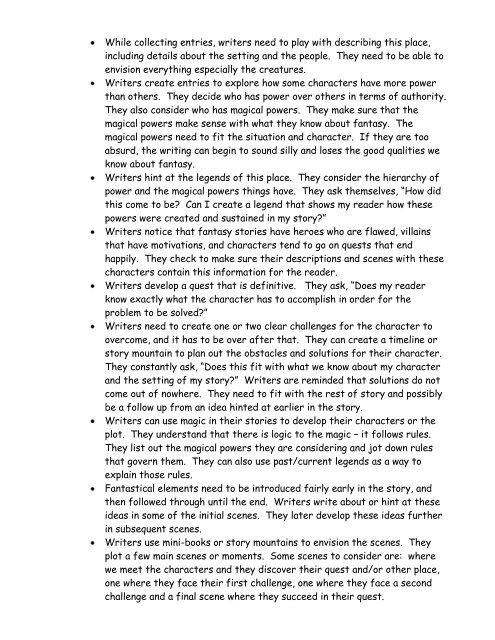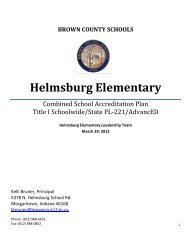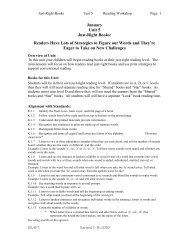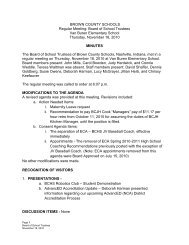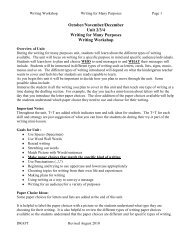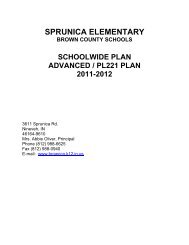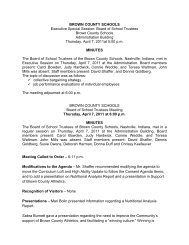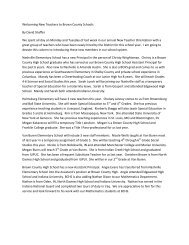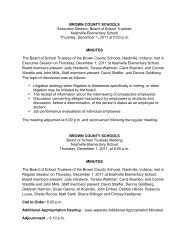Grades 5 and 6 Writing Units of Study.pdf
Grades 5 and 6 Writing Units of Study.pdf
Grades 5 and 6 Writing Units of Study.pdf
Create successful ePaper yourself
Turn your PDF publications into a flip-book with our unique Google optimized e-Paper software.
While collecting entries, writers need to play with describing this place,<br />
including details about the setting <strong>and</strong> the people. They need to be able to<br />
envision everything especially the creatures.<br />
Writers create entries to explore how some characters have more power<br />
than others. They decide who has power over others in terms <strong>of</strong> authority.<br />
They also consider who has magical powers. They make sure that the<br />
magical powers make sense with what they know about fantasy. The<br />
magical powers need to fit the situation <strong>and</strong> character. If they are too<br />
absurd, the writing can begin to sound silly <strong>and</strong> loses the good qualities we<br />
know about fantasy.<br />
Writers hint at the legends <strong>of</strong> this place. They consider the hierarchy <strong>of</strong><br />
power <strong>and</strong> the magical powers things have. They ask themselves, ―How did<br />
this come to be? Can I create a legend that shows my reader how these<br />
powers were created <strong>and</strong> sustained in my story?‖<br />
Writers notice that fantasy stories have heroes who are flawed, villains<br />
that have motivations, <strong>and</strong> characters tend to go on quests that end<br />
happily. They check to make sure their descriptions <strong>and</strong> scenes with these<br />
characters contain this information for the reader.<br />
Writers develop a quest that is definitive. They ask, ―Does my reader<br />
know exactly what the character has to accomplish in order for the<br />
problem to be solved?‖<br />
Writers need to create one or two clear challenges for the character to<br />
overcome, <strong>and</strong> it has to be over after that. They can create a timeline or<br />
story mountain to plan out the obstacles <strong>and</strong> solutions for their character.<br />
They constantly ask, ―Does this fit with what we know about my character<br />
<strong>and</strong> the setting <strong>of</strong> my story?‖ Writers are reminded that solutions do not<br />
come out <strong>of</strong> nowhere. They need to fit with the rest <strong>of</strong> story <strong>and</strong> possibly<br />
be a follow up from an idea hinted at earlier in the story.<br />
Writers can use magic in their stories to develop their characters or the<br />
plot. They underst<strong>and</strong> that there is logic to the magic – it follows rules.<br />
They list out the magical powers they are considering <strong>and</strong> jot down rules<br />
that govern them. They can also use past/current legends as a way to<br />
explain those rules.<br />
Fantastical elements need to be introduced fairly early in the story, <strong>and</strong><br />
then followed through until the end. Writers write about or hint at these<br />
ideas in some <strong>of</strong> the initial scenes. They later develop these ideas further<br />
in subsequent scenes.<br />
Writers use mini-books or story mountains to envision the scenes. They<br />
plot a few main scenes or moments. Some scenes to consider are: where<br />
we meet the characters <strong>and</strong> they discover their quest <strong>and</strong>/or other place,<br />
one where they face their first challenge, one where they face a second<br />
challenge <strong>and</strong> a final scene where they succeed in their quest.


